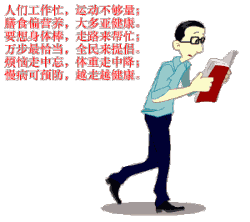
研究人员担心,26%的癌症患者不能获得护理,和18%的人付不起处方药,保险继续增加医疗费用和医疗将变得更糟。
(摘要)研究人员最近的一项研究表明,大量的癌症患者他们负担不起治疗,新治疗方案的实施会继续增加负担。
美国临床肿瘤学会年会上北卡罗莱纳大学的研究人员报告:超过四分之一的癌症患者无力支付他们治疗,近五分之一付不起他们的处方。
癌症病人治疗须有一个严格的药物治疗方案,如果不能做到这一点,就存在达不到治疗效果的风险,且关系到病人最终战胜疾病信心。
CHAPEL HILL, N.C., June 3 (UPI) -- A significant number of cancer patients report they cannot afford treatment, a problem researchers in a recent study fear will become worse as the costs of new cancer treatments continue to increase.
Researchers at the University of North Carolina report more than one-quarter of cancer patients can't afford to pay for their treatment, and nearly one in five can't afford their prescriptions, according to a study presented at the annual meeting of the American Society of Clinical Oncology.
Cancer patients are often treated with tight drug regimens designed around regularity and must be closely monitored, but if this cannot be done, not only does it risk the efficacy of the treatment, but the potential for patients to beat the disease.
Making concerns worse, researchers say the cost of cancer treatment continues to increase as deductibles and premiums increase at the same time, almost guaranteeing the problem will get worse over time if nothing is done.
"There is a significant proportion of our patients who are having financial difficulties, and perhaps missing care because of those difficulties," Dr. Greg Knight, a researcher at the University of North Carolina, said in a press release. "From an intervention standpoint, I think the first priority is being able to identify these patients early, and the second is being able to bring all of the resources from public and private sources to patients, and intervene that way."
For the study, the researchers recruited 1,992 patients with a median age of 60, of whom 81 percent were white, 16 percent black and 56 percent were within two years of their diagnosis.
Of these, 524 patients, or 26 percent of participants in the study, reported financial toxicity, defined as a participant who agreed with the phrase "You have to pay more for medical care than you can afford" as part of a survey on patient care.
Patients with financial toxicity were more likely not to comply with medical care, as 18 percent could not afford prescription medications, 5.7 percent could not afford mental health care, 23 percent could not afford to go to the dentist, 11.5 percent could not afford doctor's visits, 6.3 percent could not afford medical tests and 7.7 percent could not afford over-the-counter medications.
Among those having trouble paying for care, the most common reason was an inability to afford general household expenses, which 18 percent reported, with a lack of health insurance affecting 11 percent of the participants. Additionally, 7 percent said they did not get care because they could not take time off of work and 5 percent said they did not have transportation to doctors' offices.
Although the researchers suggest identifying patients and helping them contact support organizations could help, they say further research is needed for the most effective ways to help patients get the care they need.
"You can prescribe the best drug in the world, but if patients can't afford it, and they can't get it, then it won't be effective," Knight said. "We saw a significant portion of patients in our study who were stretching their prescriptions or not coming to the doctor's office."




